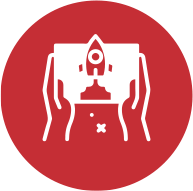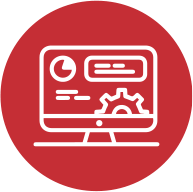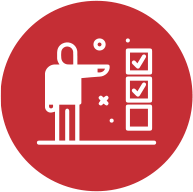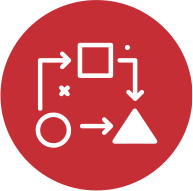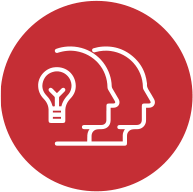You’ve made a successful start with RPA. That’s great. Perhaps you recently completed the proof of concept and now want to know what comes next. Or maybe you’ve already automated a significant number of processes and are facing challenges.
Tacstone Technology supports organizations in the next steps of their RPA journey. The subsequent phase, which we refer to as scaling up RPA, can be quite challenging, and we can be honest about that. Scalability, security, robustness, reuse, ownership, governance, change management, communication, sourcing, training, architecture, maintenance, and monitoring—these are all aspects that come into play along the way. They need to be well-managed to prevent an early end to the journey. We’re here to assist you further. We believe that collaborating with the right RPA consultancy partner contributes to your success.
Sign up for Tacstone news!
RPA Security & GDPR Compliance
Software robots and security – how do they go hand in hand? What are the risks when robots operate our ICT systems?
Security raises valid concerns, especially when software robots access critical business systems and personal data. How do we ensure safety in such scenarios? UiPath technology adheres to the highest security standards and holds various certifications. When combined with the development standards, methods, and procedures of Tacstone Technology, we can establish an optimally secure environment. Guaranteed.
“Which access rights do robots need to perform their tasks? Who has access to specific components of the UiPath suite? What data is exchanged between the robots and UiPath Orchestrator? What data is retained, and what is not?”
RPA (Functional) Support and Management
Many organizations grapple with the management and support of software robots. The success of a relatively straightforward pilot can create a false sense of security. It may seem easy: just “build” a robot script, observe the robot doing its job, and it’s all taken care of, right? After all, the robot doesn’t get sick and doesn’t take vacations. However, the robot sometimes proves vulnerable to unexpected situations or changes in applications.
What do you do when the software robot suddenly stops working? And the employee who used to handle the work no longer has time? What if the RPA Developer who originally developed the robot script is no longer available?
Tacstone Technology assists organizations in establishing a robust RPA management chain. We currently support dozens of organizations. This second-line support ensures guaranteed availability of your entire virtual workforce daily, between 08:00 and 18:00, based on a clear SLA (Service Level Agreement).
Training and RPA Young Talent Program
Being an RPA Developer is a specialized profession and not a (part-time) hobby that you casually add to your responsibilities. Building a good, robust, secure, and efficient robot requires in-depth technical knowledge and extensive practice. While the UiPath Academy provides a foundation, true learning happens on the job and requires additional training and guidance.
Tacstone Technology has won a Global Award as the UiPath Democratizing Partner of the Year, recognizing our role as an accredited RPA educator. Our own RPA Developers are all UiPath Advanced certified.
If you’re looking for RPA Developers for permanent positions, it proves challenging in practice. Therefore, Tacstone and YoungCapital NEXT have collaborated to establish an RPA Young Talent program. We recruit suitable candidates, provide vocational training, and make the trainee immediately deployable in your RPA project. We continue to provide intensive guidance to the trainee, and after 1.5 years, you can hire them without additional costs.
‘Robot Audit’
When building a robot, there are often numerous ways to achieve the desired outcome. The accessibility of RPA allows for a simple start. However, the downside is that, in practice, we often encounter unstable, unsafe, and non-reusable robots. Organizations eventually face issues, usually at the most inconvenient time.
To address this, Tacstone has developed the ‘Robot Audit.’ In a short period, we conduct an audit on existing robot scripts. We evaluate them based on the correct application of the REFramework, effective logging, exception handling, coding hygiene, reusability, and various other aspects.
What the UiPath Hyperautomation platform specifically offers:
The time when the UiPath platform only consisted of Studio and Orchestrator is long gone. UiPath has significantly invested in expanding the Hyperautomation platform over the past few years. Many new and interesting products have been added to the platform, including Automation Hub and Process Mining, as well as Document Understanding, Insights, and the Test Suite.
We are here to help you explore these products, whether through a demo, a free trial license, or a short pilot program. And, of course, with the subsequent rollout.
RPA Center of Excellence: A foundation for successful scaling
We often observe that scaling RPA, after a successful initial phase, can be more challenging than expected. This challenge is typically not due to limitations in technology; instead, it is often attributed to gaps in governance and organization. Unclear rules, undefined ownership, inadequate information security, or insufficient knowledge and competencies to scale are common issues.
What type of governance is most effective? What control model suits your organization best? There isn’t a one-size-fits-all model or approach. The most suitable model and approach depend on factors such as:
- Maturity of RPA knowledge in different organizational units.
- Availability of resources, both human and financial.
- Design of the underlying IT infrastructure and application architecture: what is common, and what is specific to each business unit?
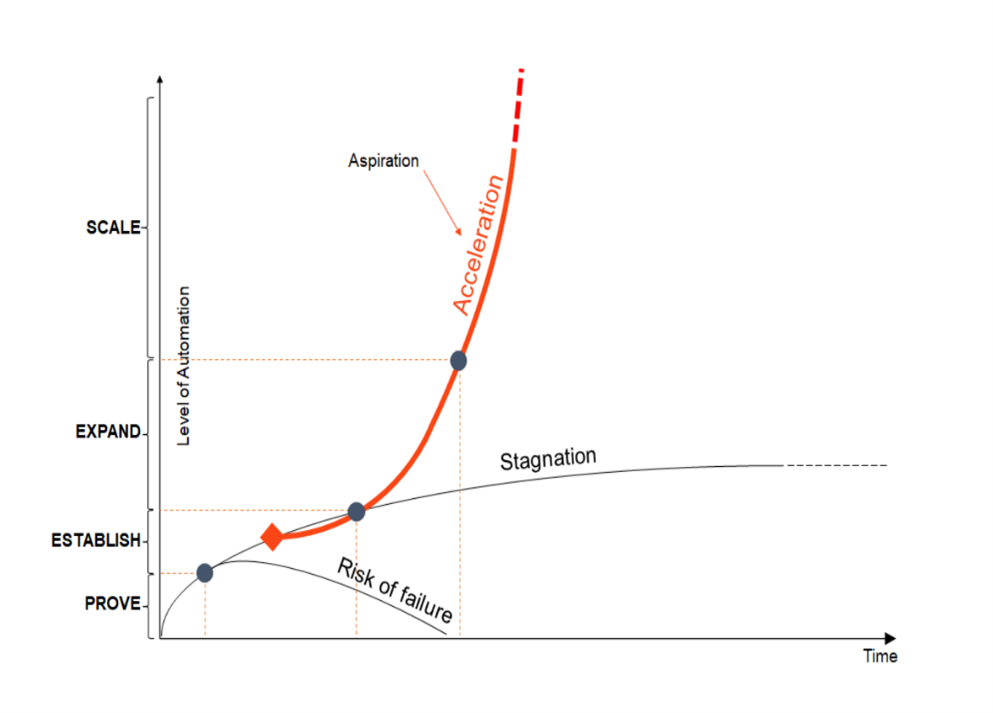
RPA is inherently a business-driven development, often with short-cycle (agile) developments. Essentially, RPA behaves like a virtual employee: how it should work, when, how often, and with what exceptions should be managed by the business, not the IT department.
At the same time, RPA is a form of automation. Therefore, we consider RPA governance as a specific complement to existing IT governance structures.
Track record
While we can certainly provide you with insights into our identity, work approach, and the possibilities with RPA and AI, if you’re interested in tangible examples of our practical accomplishments and the clients we’ve worked with, take a look at these customer cases.


